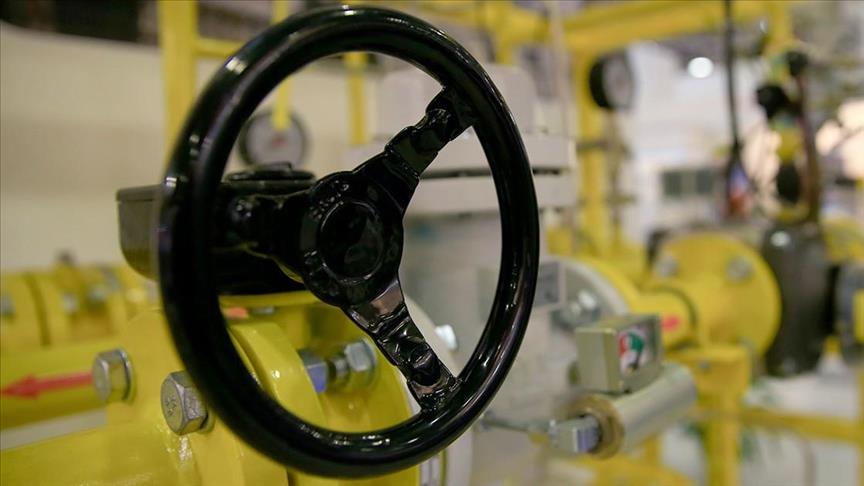Azerbaijan, a major oil and natural gas producer, has emerged as a key player for Europe’s energy security by reshaping Eurasia’s energy landscape through its recent expansion of natural gas exports to Europe.
As Europe faces a natural gas crisis from weaning off Russia supplies due to the war in Ukraine, the bloc countries sought new suppliers to diversify their energy resources. These searches raised interest in Azerbaijan as an alternative source, as it is one of the stakeholders in the 3,500-kilometer-long Southern Gas Corridor that extends from Baku to Europe via Georgia and Türkiye.
The EU and Azerbaijan signed a Memorandum of Understanding (MoU) for a strategic partnership in energy on July 18, 2022. Azerbaijan, which has historically exported natural gas only to Georgia and Türkiye, extended its export base to seven countries with the addition of five European nations.
EU leaders describe Azerbaijan, which exports 50% of its natural gas to Europe, as a “reliable partner” and “pan-European gas supplier.”
Azerbaijan exports natural gas to Italy, Greece, Bulgaria, Romania and Hungary. However, Serbia, Albania, Bosnia and Herzegovina, Montenegro, Croatia, Slovakia and North Macedonia are also expected to begin gas purchases from Azerbaijan in the future.
Baku, which exported more than 8 billion cubic meters (bcm) of natural gas to Europe in 2021, increased this figure to 11.8 bcm last year.
Azerbaijan’s natural gas exports to Europe have progressively increased from 2021 to 2023, with exports of 19 bcm made in 2021, 22.6 bcm in 2022, and 23.8 bcm in 2023.
Following the signing of the MoU with the EU, the volume of natural gas sent from Azerbaijan to Europe is expected to increase to 20 bcm by 2027.
The Caspian country has proven natural gas reserves of 2.6 trillion cubic meters, which are forecast to expand following exploration in the Absheron, Umid, Babek and Karabakh fields.
Nevertheless, additional investments are needed to increase gas volumes designated for Europe.
The annual capacity of the Trans Adriatic Pipeline (TAP), the European leg of the Southern Gas Corridor, is currently 10 bcm, but plans are afoot to double this capacity. Additionally, with the necessary investment injection, a target could be set to increase the capacity of the Trans-Anatolian Natural Gas Pipeline (TANAP), the Turkish leg of the corridor, from 16 bcm to 24 bcm and then to 31 bcm.
If Europe, which currently buys about 155 bcm of natural gas from Russia each year, were to buy more natural gas from Azerbaijan, investments in this sector in Azerbaijan would likely increase.
Speeches made by Azerbaijan’s President Ilham Aliyev described natural gas deliveries to Europe as “reshaping the energy map of Eurasia” and “making a great contribution to Europe's energy security.”
Last year, Aliyev also declared that Azerbaijan's natural gas reserves are enough to cover the needs of the country and its partners for at least another 100 years.
When signing the MoU on a strategic partnership in energy in 2022, EU Commission President Ursula von der Leyen said, “The European Union has therefore decided to diversify away from Russia and to turn towards more reliable, trustworthy partners.”
- Azerbaijan demonstrates its stability and dependability as natural gas supplier
Ilham Shaban, the president of the Baku-based Caspian Barrel Oil Research Center, told Anadolu that based on its three-year history as a stable and reliable natural gas supplier in the European market since Dec. 31, 2020, confidence in Azerbaijan as a supplier is gradually growing in Europe.
He explained that the country's natural gas exports will only increase further with the start of operations at the Absheron, Babek and Karabakh deposits and increased production from the Umid deposit.
The country has now pivoted from oil to natural gas in production and exports, and Shaban said based on its sufficient natural gas reserves that “the 21st century will be the century of natural gas for Azerbaijan.”
Thanks to Azerbaijan’s timely investments in building oil and gas pipelines, Shaban said oil and natural gas from other Caspian countries can be transited via Azerbaijan.
He explained that oil transit revenues from other Caspian countries like Kazakhstan and Turkmenistan would cover the fall in the country’s oil production.
'In the future, Turkmenistan's abundant natural gas resources will be extracted and transported to Europe via Azerbaijan and Türkiye. We just need some time for this,” he said.
Reporting by Ruslan Rehimov in Baku
Writing by Handan Kazanci
Anadolu Agency
energy@aa.com.tr


